By Seimar Solano Nelson
Edited by Priscilla Young & Annie Jin
It was mid-August and some of us second-year students, feeling somewhat terrified, were counting down to the end of the summer holidays when we would return to the Middle Kingdom to start on our thesis. But for others, counting down the days was exciting as they will initiate their master’s degree program in China.
After the first week of class, I met with four new full-time international students to talk about their initial weeks in the China. With almost 100 new international students this year, diversity was not scarce.
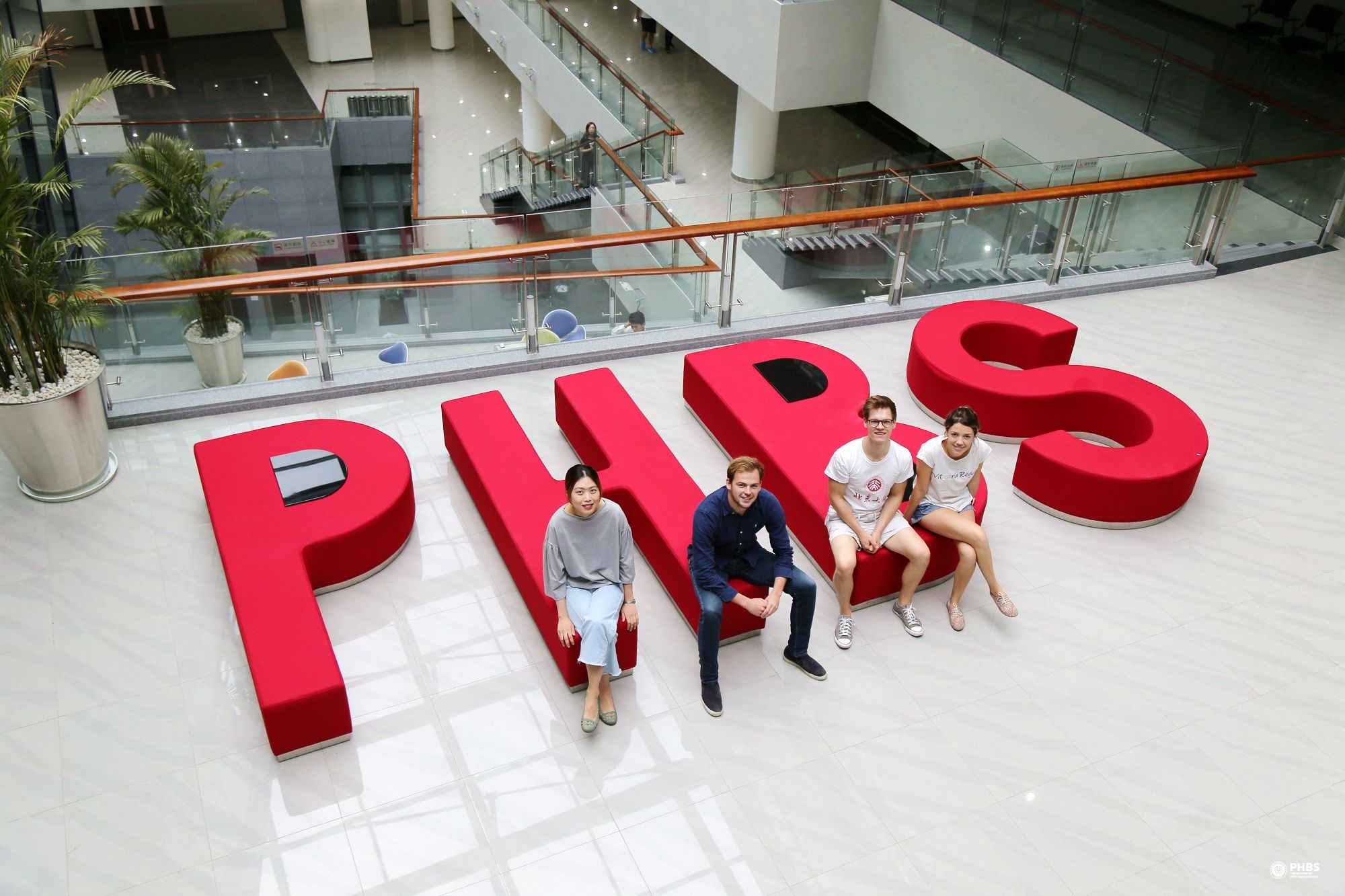
Rick Nobels from the Netherlands, who earned his bachelor’s degree in business administration, is now enrolled in the Masters of Management program. Although new to Shenzhen, he is not new to China. During his undergraduate study, Rick participated in an exchange program in Jinan, the capital of Shandong Province in Eastern China, and he said that he also visited Shenzhen two years ago.
“I really like China, and the people here are so nice to me,” said Rick. “Learning Chinese became one of my hobbies, so when deciding where to do my master’s I decided to come back to China to improve my Chinese.” Rick is HSK-certified level 2 in Mandarin and is an avid swimmer.
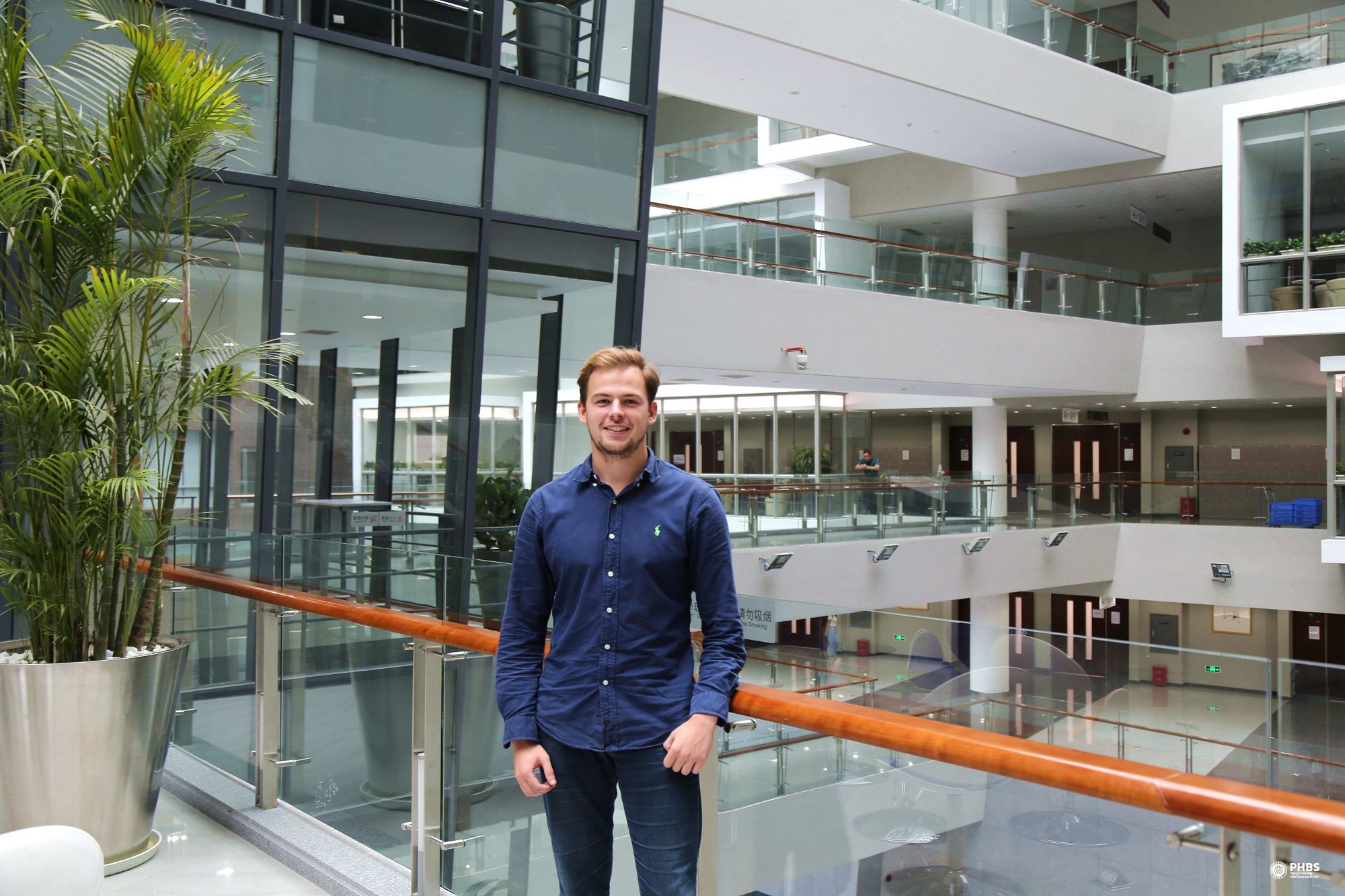
Rick Nobels from the Netherlands
Milim Lee of South Korea who studied business administration as an undergraduate, as well, believes Mandarin Chinese is an important language to learn. “I started learning Chinese last year, and the more I did the more I learnt about China. So, I wanted to come here, but not for a short time just to learn the language. I wanted to get more out of it, so I considered taking the master's.”
Milim found PHBS attractive, as it is a top university and provides the master’s program in English, while she can meantime improve her Chinese. Further, since PHBS’s programs include Business Chinese as a required course for international student, it deepens the learning process. Milim sees the language as an equally important complement to the master’s degree and hopes it serves as a vehicle for her future career.
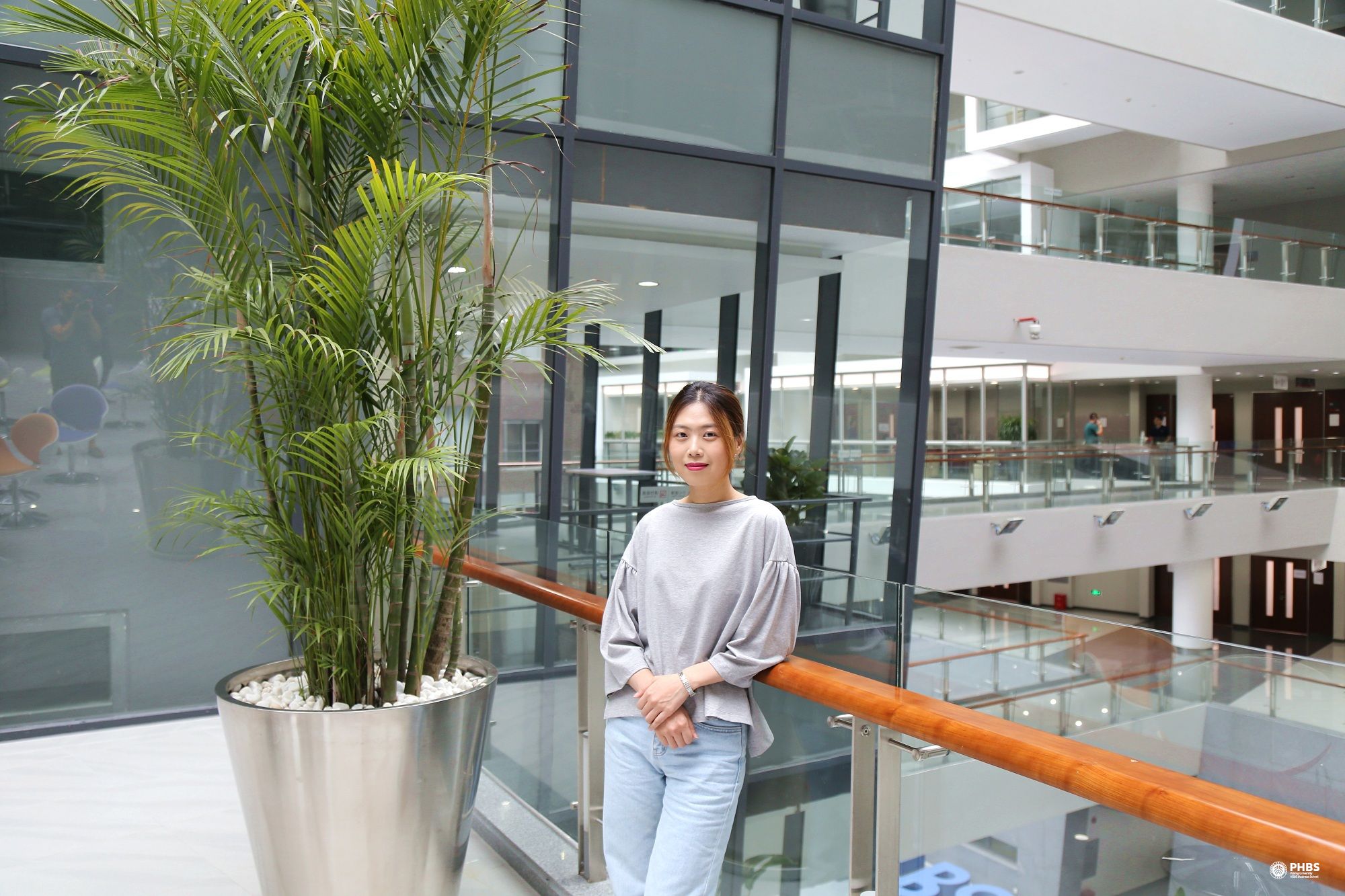
Milim Lee of South Korea
“Why economics?” I asked Carolina Lages, who is one of the few international students accepted into the rigorous economics program. Carolina comes from Brazil, and her laugh is contagious. She earned her bachelor’s degree in public administration and economics in Brazil and said she feels like an outlier here at PHBS. “I finished my studies ten years ago and started working for the Infrastructure Department of Brazil.” After eight years of work experience she moved first to New York for a few months and then decided to find out for herself if China really is what’s always on the US news channels. “I searched for the best universities and found Peking University to be one of the best. And as I am very interested in development policies, I found China to be the right choice for me.”
Discussing the school’s courses, Carolina said she was a little afraid about professors’ English was not good enough to understand, but soon found out that was not a problem. “I did drop out of Jake Zhao’s macro class, because I heard it is too difficult, and I don’t really need to take it this module, but will still audit the class.” Professor Zhao, who earned his PhD in Economics from the University of Wisconsin-Madison, has been said to push his students through a rigorous advanced macroeconomics course.
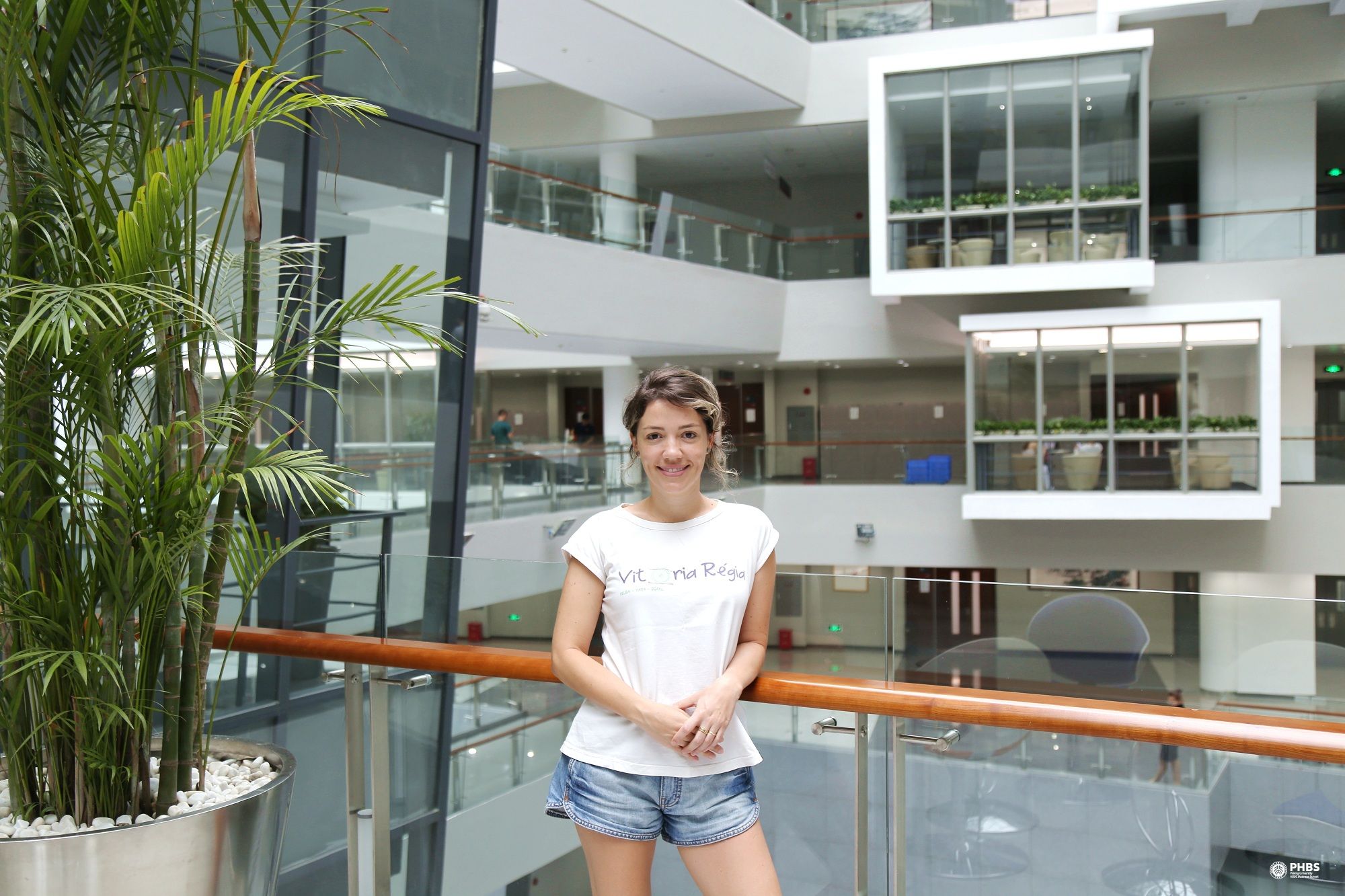
Carolina Lages
Sven Wessling, participating in a double degree program between PHBS and his home university Ruhr-University Bochum in Bochum, Germany, is no stranger to China either. During his two-year double degree education, he would spend the first year in the MSc in Economics at RUB in Germany and the second year in the MSc in Finance at PHBS. Sven grew up in a small town, but studied in a summer program at Tongji University in Shanghai last year. “I find it difficult to be in large cities, but I have to say Shenzhen might be the most beautiful big city I’ve been in. Unlike Hong Kong, where it is very crowded and crammed, Shenzhen is the opposite and there’s more greenery around the city here, with many parks.”
But the undergraduate in management and economics pointed out a notable quality about Shenzhen. “What I especially like about Shenzhen is that there are many buses, taxis, and cars in general that are electric. So even though you are in a big city, it is very quiet when you walk around it.” By the end of last year, all of Shenzhen’s more than 16 thousand buses had gone electric. By contrast, Shenzhen’s e-bus fleet (each bus requires five hours of charging to support a full day of operation), is bigger than the e-bus fleets of New York, Los Angeles, New Jersey, Chicago, and Toronto fleets combined.
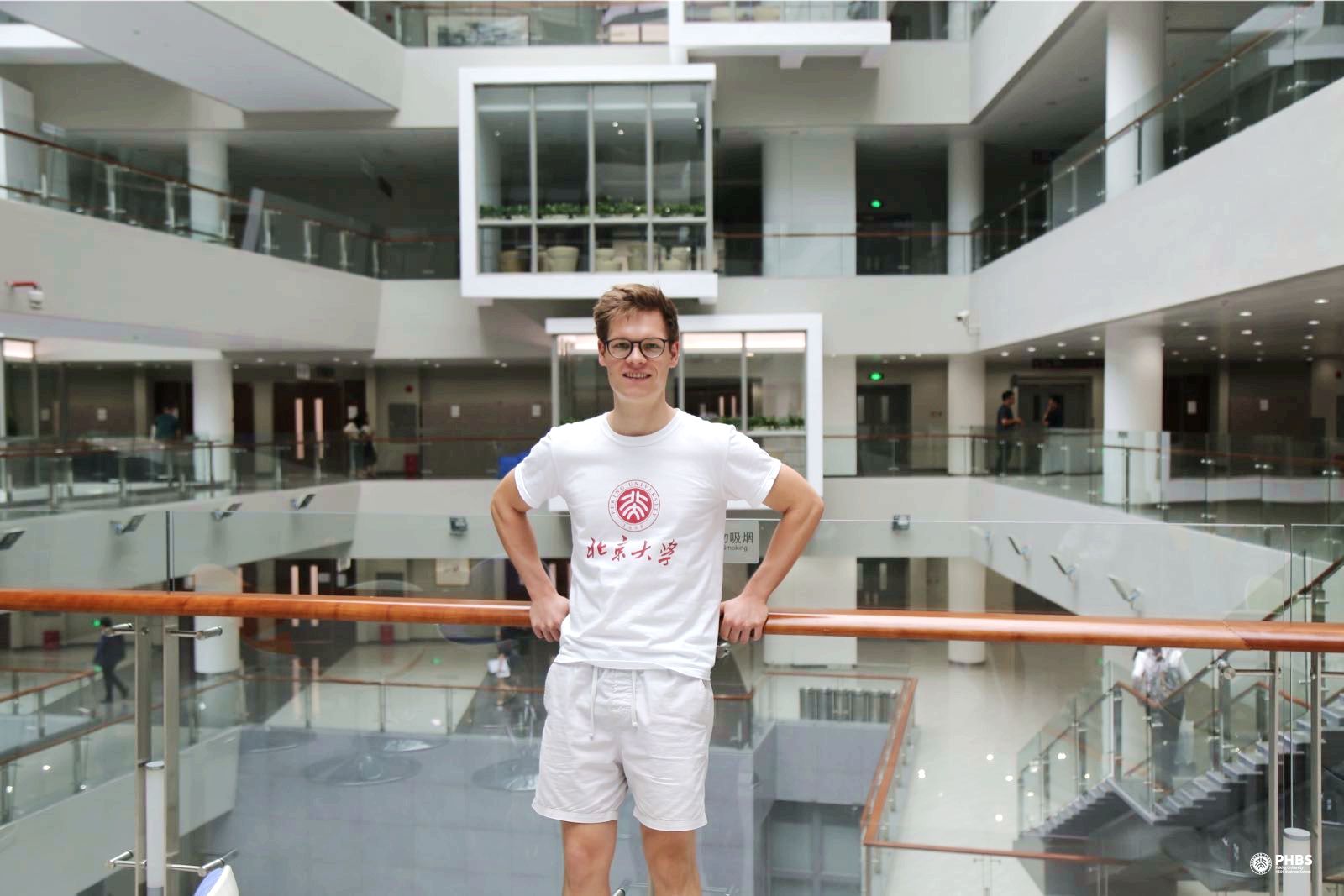
Sven Wessling
Although some miss the cheese, coffee and bread from the West, we hope that soon Shenzhen will become more and more familiar and a new home away from home. We wish you the best of luck in your next two years at PHBS!
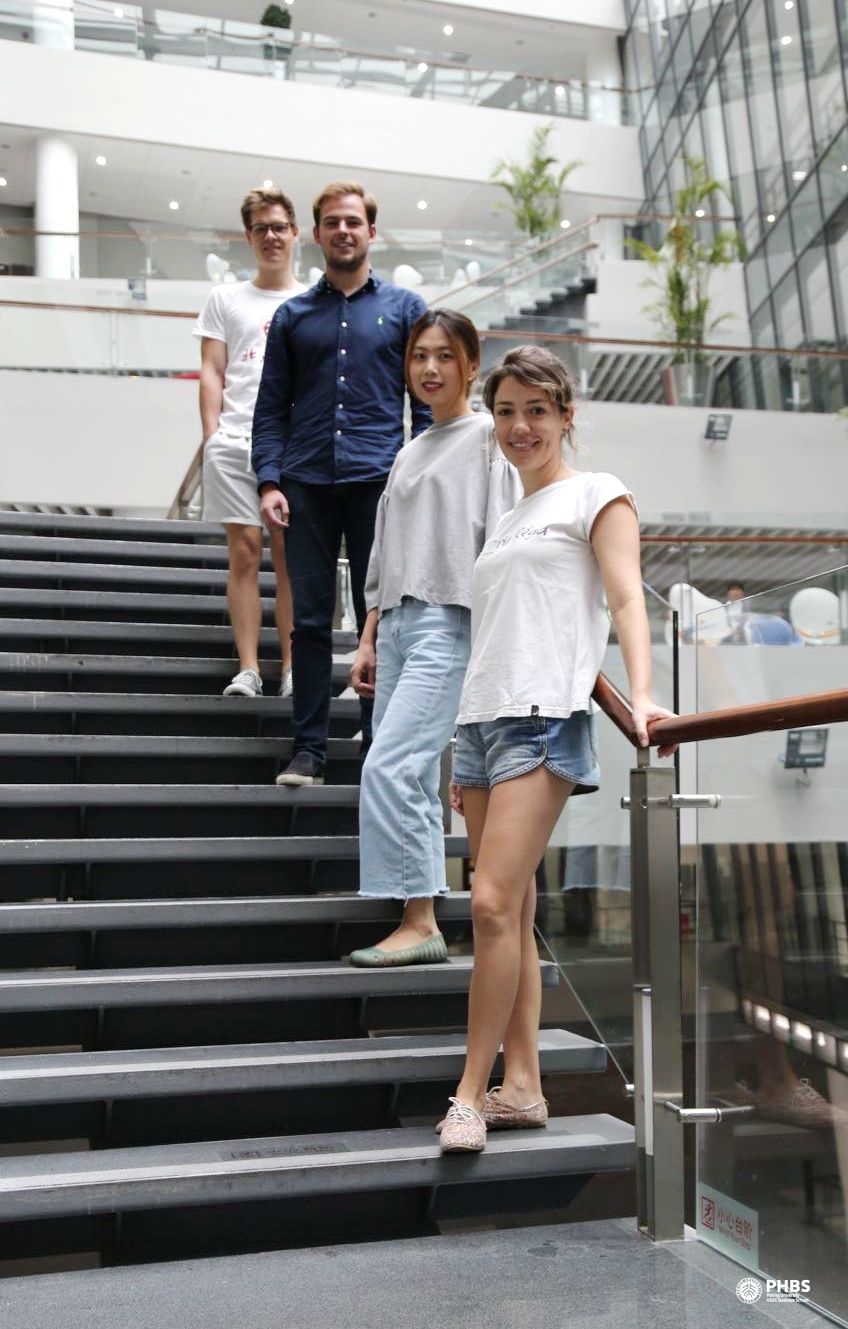 We wish you the best of luck in your next two years at PHBS!
We wish you the best of luck in your next two years at PHBS!




















